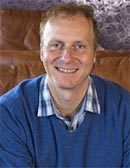What Research Tells Us About Psychotherapy?
What research tells us is effective is brief (that is to say time limited and not endless) therapy which includes behavioral, cognitive and hypnotic therapy and, if necessary interpersonal (communication) training and practical support and help. Seeing someone as part of a wider 'system such as their family, community and work environments is also essential to truly help them.Human beings are not flowers or purely thinking or behavioral machines or seething subconscious masses of Freudian Greek archetypes. We are an interesting blend of the behavioral, social, physical, metaphorical, cognitive and emotional. And it is to all these that a good psychotherapy will apply.
The European Therapy Studies Institute (E.T.S.I) has developed 'Human Givens Therapy which seeks to align therapy to research and physical understanding of how the brain works socially, emotionally etc. They are interested in the 'givens' of being human and work from there, taking into account basic needs that all people share. Teaching people the skills to meet their own basic needs means that psychotherapy becomes unnecessary for them.
The philosophy of psychotherapy has finally changed, or perhaps come full circle. If observation can come before theory then theory can perhaps become a practical basis for real help for real people in the real world.
Edited by Roger Elliott
Back to Psychology Articles
blog comments powered by Disqus




 PDF
PDF Email
Email Print
Print

